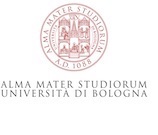VRON WARE
|
|
|
The German entomologist Maria Merian (1647-1717) has recently been recognised as the first person to write about the symbiotic relationship between creatures and their habitats, making her the world’s first published ecologist. She carried out her most famous studies in Surinam where she encountered enslaved peoples, allegedly purchasing two slaves for her own use. In the 1940s the sound of nightingale song was incorporated into British patriotic propaganda through the medium of TV and radio broadcast. In the last two years, the BBC started recording nightingales live in the interests of educating new generations about the vulnerability of migrant songbirds. In his book Insectopedia, Hugh Raffles writes of “the nightmare of fecundity and the nightmare of the multitude” produced by the thought of insects as a species. In addition to “the nightmare of uncontrolled bodies and the nightmare of inside our bodies and all over our bodies”, there is also “the nightmare of the military that funds nearly all basic research in insect science”. Meanwhile, new scientific findings indicate that insect populations in Germany have declined by over 75% in three generations. These disparate figures and facts provide a starting point for the question that underpins the three seminars: How do we manage to hold on to a critique of militarism, war, racism, and xenophobia while at the same time paying attention to the rhythms and tempos of the living world? Vron Ware is Professor of Sociology and Gender Studies at Kingston University. She is currently module leader for two new undergraduate courses: How to Change the World (L5) and War and Society (L6). She taught at the University of Greenwich (1992-9) and Yale University (1999-2005) and was a research fellow at the Open University (2007-2014). She began her working life as a journalist and photographer at Searchlight, the anti-fascist magazine founded in the 1970s. Since then She has worked intermittently as a freelance writer, with a spell as researcher for a feminist NGO specialising in the design of the built environment. |




